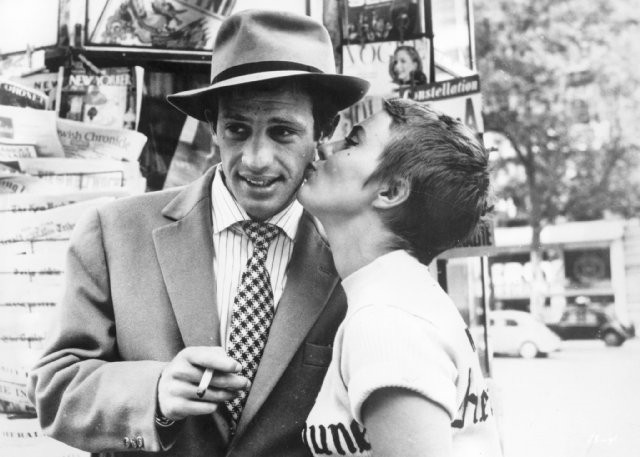MARINA ABRAMOVIĆ: THE ARTIST IS PRESENT (Matthew Akers, 2012)
Film Forum
209 West Houston St.
June 13-26
212-727-8110
www.filmforum.org
 For forty years, Belgrade-born performance artist Marina Abramović has been presenting cutting-edge, often controversial live works that redefine what art is. For her highly anticipated major career retrospective at MoMA in 2010, “Marina Abramović: The Artist Is Present,” which was titled and curated by Klaus Biesenbach, the longtime New Yorker had something extraordinary planned: For the run of the show, from March 14 through May 31, she would spend the entire time the museum was open sitting across from strangers, gazing into each other’s eyes for as long as the visitor wanted. Documentary cinematographer Matthew Akers takes viewers behind the scenes of that remarkable show in his directorial feature debut, also called Marina Abramović: The Artist Is Present. Given unlimited access to both Abramović and MoMA, Akers follows the sixty-three-year-old artist as she prepares for the exhibition; heads to a country retreat where she trains several dozen men and women who will “re-perform” some of her older works; and reconnects with former partner and lover Ulay, with whom she first performed many of the pieces in the show. Abramović is seen relaxing in a tub, chopping vegetables, and taking a rare turn behind the wheel of a car, performing relatively menial tasks compared to her art, in which she flagellates herself, carves a star into her stomach, runs into walls, gets slapped by and slaps Ulay, and allows visitors to do whatever they want to her using various objects. The film is at its best when Abramović and Ulay open up about their relationship, get emotional over seeing the old van they used to live in, and discuss their final performance, “The Great Wall Walk,” when they started at opposite ends of the Great Wall of China and walked toward each other over the course of three months, then broke up. While various art critics and curators, including Biesenbach and the Whitney’s Chrissie Iles, sing Abramović’s praises, the film never delves into the more serious meaning behind her art and avoids examining its controversial nature, save for one brief news report decrying its use of nudity. But the long scenes in which Abramović and visitors look into each other’s eyes are absolutely mesmerizing; the elegant Abramović is always steady and stalwart, her concentration intoxicating, inspiring, and more than a little frightening, the opening of her eyes a work of art in and of itself, while the person opposite her tears up, smiles, or pats their heart softly, thanking her for the intense, emotional connection occurring between them, which is essentially what all art is about. Marina Abramović: The Artist Is Present opens June 13 at Film Forum for a two-week run prior to its debut on HBO on July 2, with director Akers on hand to talk about the project at the 7:50 screening opening night.
For forty years, Belgrade-born performance artist Marina Abramović has been presenting cutting-edge, often controversial live works that redefine what art is. For her highly anticipated major career retrospective at MoMA in 2010, “Marina Abramović: The Artist Is Present,” which was titled and curated by Klaus Biesenbach, the longtime New Yorker had something extraordinary planned: For the run of the show, from March 14 through May 31, she would spend the entire time the museum was open sitting across from strangers, gazing into each other’s eyes for as long as the visitor wanted. Documentary cinematographer Matthew Akers takes viewers behind the scenes of that remarkable show in his directorial feature debut, also called Marina Abramović: The Artist Is Present. Given unlimited access to both Abramović and MoMA, Akers follows the sixty-three-year-old artist as she prepares for the exhibition; heads to a country retreat where she trains several dozen men and women who will “re-perform” some of her older works; and reconnects with former partner and lover Ulay, with whom she first performed many of the pieces in the show. Abramović is seen relaxing in a tub, chopping vegetables, and taking a rare turn behind the wheel of a car, performing relatively menial tasks compared to her art, in which she flagellates herself, carves a star into her stomach, runs into walls, gets slapped by and slaps Ulay, and allows visitors to do whatever they want to her using various objects. The film is at its best when Abramović and Ulay open up about their relationship, get emotional over seeing the old van they used to live in, and discuss their final performance, “The Great Wall Walk,” when they started at opposite ends of the Great Wall of China and walked toward each other over the course of three months, then broke up. While various art critics and curators, including Biesenbach and the Whitney’s Chrissie Iles, sing Abramović’s praises, the film never delves into the more serious meaning behind her art and avoids examining its controversial nature, save for one brief news report decrying its use of nudity. But the long scenes in which Abramović and visitors look into each other’s eyes are absolutely mesmerizing; the elegant Abramović is always steady and stalwart, her concentration intoxicating, inspiring, and more than a little frightening, the opening of her eyes a work of art in and of itself, while the person opposite her tears up, smiles, or pats their heart softly, thanking her for the intense, emotional connection occurring between them, which is essentially what all art is about. Marina Abramović: The Artist Is Present opens June 13 at Film Forum for a two-week run prior to its debut on HBO on July 2, with director Akers on hand to talk about the project at the 7:50 screening opening night.
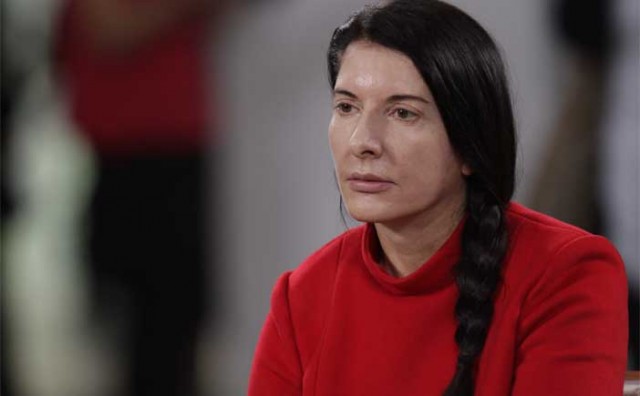
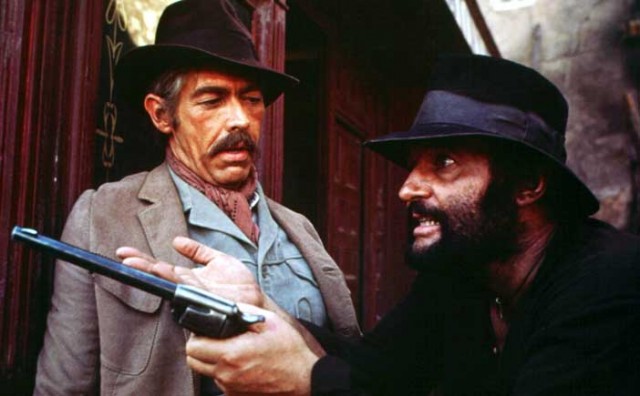
 Rod Steiger and James Coburn star in Sergio Leone’s final spaghetti Western, set during the Mexican Revolution in the 1910s. Steiger is Juan Miranda, the leader of a group of bandits who have stolen a stagecoach. Coburn is Sean Mallory, an IRA man on the run who likes blowing things up. The sweaty Juan wants to rob the Mesa Verde bank, while the cool Sean just wants to be left alone, but the two of them soon find themselves fighting together in the revolution. The film is way too long, and Ennio Morricone’s music is way too goofy, but Leone fans shouldn’t miss this rare chance to see the restored version of this film. Duck, You Sucker! is screening June 13, 19, and 21 as part of Film Forum’s Spaghetti Westerns series, which also features such well-known classics and under-the-radar gems as Damiano Damiani’s A Bullet for the General, Giulio Petroni’s Death Rides a Horse, Carlo Lizzani’s The Hills Run Red, and Giulio Questi’s Django Kill . . . If You Live, Shoot!
Rod Steiger and James Coburn star in Sergio Leone’s final spaghetti Western, set during the Mexican Revolution in the 1910s. Steiger is Juan Miranda, the leader of a group of bandits who have stolen a stagecoach. Coburn is Sean Mallory, an IRA man on the run who likes blowing things up. The sweaty Juan wants to rob the Mesa Verde bank, while the cool Sean just wants to be left alone, but the two of them soon find themselves fighting together in the revolution. The film is way too long, and Ennio Morricone’s music is way too goofy, but Leone fans shouldn’t miss this rare chance to see the restored version of this film. Duck, You Sucker! is screening June 13, 19, and 21 as part of Film Forum’s Spaghetti Westerns series, which also features such well-known classics and under-the-radar gems as Damiano Damiani’s A Bullet for the General, Giulio Petroni’s Death Rides a Horse, Carlo Lizzani’s The Hills Run Red, and Giulio Questi’s Django Kill . . . If You Live, Shoot!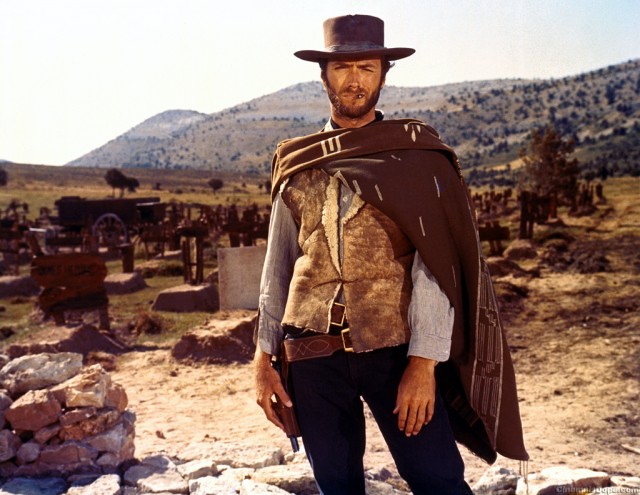
 One of the all-time-great spaghetti Westerns, Sergio Leone’s dusty three-hour operatic oater stars Clint Eastwood as the Good (Blondie), Lee Van Cleef as the Bad (Angel Eyes), and Eli Wallach as the Ugly (Tuco Benedicto Pacifico Juan Maria Ramirez, whose list of criminal offenses is a riot), three unique individuals after $200,000 in Confederate gold buried in a cemetery in the middle of nowhere. Nearly 20 minutes of never-before-seen footage added to the film several years ago, with Wallach and Eastwood overdubbing brand-new dialogue, so if you haven’t seen it in a while, it might just be time to catch it again, this time on the big screen as part of Film Forum’s impressive “Spaghetti Westerns” series. Ennio Morricone’s unforgettable score and Torino delli Colli’s gorgeous widescreen cinematography were also marvelously enhanced; their work in the scene when Tuco first comes upon the graveyard will make you dizzy with delight. And then comes one of the greatest finales in cinema history. The Good, the Bad and the Ugly is screening at Film Forum on June 9, 10, 12, and 21, with the series continuing with such well-known classics and under-the-radar gems as Damiano Damiani’s A Bullet for the General, Giulio Petroni’s Death Rides a Horse, Monte Hellman’s China 9, Liberty 37, and Giulio Questi’s Django Kill . . . If You Live, Shoot!
One of the all-time-great spaghetti Westerns, Sergio Leone’s dusty three-hour operatic oater stars Clint Eastwood as the Good (Blondie), Lee Van Cleef as the Bad (Angel Eyes), and Eli Wallach as the Ugly (Tuco Benedicto Pacifico Juan Maria Ramirez, whose list of criminal offenses is a riot), three unique individuals after $200,000 in Confederate gold buried in a cemetery in the middle of nowhere. Nearly 20 minutes of never-before-seen footage added to the film several years ago, with Wallach and Eastwood overdubbing brand-new dialogue, so if you haven’t seen it in a while, it might just be time to catch it again, this time on the big screen as part of Film Forum’s impressive “Spaghetti Westerns” series. Ennio Morricone’s unforgettable score and Torino delli Colli’s gorgeous widescreen cinematography were also marvelously enhanced; their work in the scene when Tuco first comes upon the graveyard will make you dizzy with delight. And then comes one of the greatest finales in cinema history. The Good, the Bad and the Ugly is screening at Film Forum on June 9, 10, 12, and 21, with the series continuing with such well-known classics and under-the-radar gems as Damiano Damiani’s A Bullet for the General, Giulio Petroni’s Death Rides a Horse, Monte Hellman’s China 9, Liberty 37, and Giulio Questi’s Django Kill . . . If You Live, Shoot!
 Winner of a Special Jury Prize in the Un Certain Regard section of the 2011 Cannes Film Festival, Andrey Zvyagintsev’s Elena is a poignant character study and family drama set in Vladimir Putin’s post-Communist Russia. Nadezhda Markina gives a marvelously understated performance as Elena, a former nurse now married to her second husband, the successful and very direct Vladimir (Andrey Smirnov). Elena’s son from her first marriage, the unemployed Sergey (Alexey Rozin), is in need of money to support his wife, Tatyana (Evgenia Konushkina) and send his son, Sasha (Igor Ogurtsov), to university, but Vladimir is reconsidering helping them out, believing that it’s about time that Sergey got a job and took care of things himself. Vladimir’s hesitation extremely disappoints Elena, especially when Vladimir continues to support his daughter, Katerina (Elena Lyadova), a free spirit who barely acknowledges his existence. After Vladimir suffers a heart attack, Elena fears for her future and that of her family, suddenly facing some hard questions. Zvyagintsev has followed up the critical smash successes The Return and The Banishment with another superbly told tale that makes expert use of the tools of his trade, from the strong, assured script, which he cowrote with Oleg Negin, and the gorgeous cinematography by Mikhail Krichman to the solid acting and the haunting music. Elena is this generation’s Jeanne Dielman, a deliberate, methodical woman who finds herself caught up in a complex situation with no easy way out. The slow pace of the film, which is filled with lingering shots and Philip Glass’s modern-noir score (from 1995’s Symphony No. 3), moves intoxicatingly to the beat of Elena’s heart. Zvyagintsev, who was just celebrated at BAM with a three-day “Next Director” retrospective, will be at Film Forum for a discussion following the 8:00 screening on May 16.
Winner of a Special Jury Prize in the Un Certain Regard section of the 2011 Cannes Film Festival, Andrey Zvyagintsev’s Elena is a poignant character study and family drama set in Vladimir Putin’s post-Communist Russia. Nadezhda Markina gives a marvelously understated performance as Elena, a former nurse now married to her second husband, the successful and very direct Vladimir (Andrey Smirnov). Elena’s son from her first marriage, the unemployed Sergey (Alexey Rozin), is in need of money to support his wife, Tatyana (Evgenia Konushkina) and send his son, Sasha (Igor Ogurtsov), to university, but Vladimir is reconsidering helping them out, believing that it’s about time that Sergey got a job and took care of things himself. Vladimir’s hesitation extremely disappoints Elena, especially when Vladimir continues to support his daughter, Katerina (Elena Lyadova), a free spirit who barely acknowledges his existence. After Vladimir suffers a heart attack, Elena fears for her future and that of her family, suddenly facing some hard questions. Zvyagintsev has followed up the critical smash successes The Return and The Banishment with another superbly told tale that makes expert use of the tools of his trade, from the strong, assured script, which he cowrote with Oleg Negin, and the gorgeous cinematography by Mikhail Krichman to the solid acting and the haunting music. Elena is this generation’s Jeanne Dielman, a deliberate, methodical woman who finds herself caught up in a complex situation with no easy way out. The slow pace of the film, which is filled with lingering shots and Philip Glass’s modern-noir score (from 1995’s Symphony No. 3), moves intoxicatingly to the beat of Elena’s heart. Zvyagintsev, who was just celebrated at BAM with a three-day “Next Director” retrospective, will be at Film Forum for a discussion following the 8:00 screening on May 16. 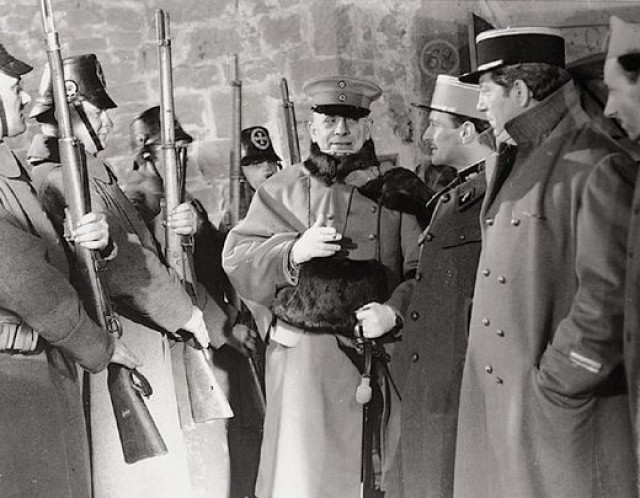

 British director Grant Gee, who has previously made such music documentaries as Meeting People Is Easy (about Radiohead), Demon Days: Live at the Manchester Opera House (with Gorillaz), and Joy Division, takes off on a more literary journey with Patience (After Sebald). Commissioned to examine a written work of fiction or nonfiction, Gee chose to delve into W. G. Maximilian Sebald’s highly influential 1995 book, The Rings of Saturn, about a character named W. G. Sebald who goes on a walk through Suffolk in East Anglia, veering off in his mind in all directions, waxing poetic on history, geography, life, death, literature, and other subjects. “In August 1992,” Sebald begins in the existential travelogue, “when the dog days were drawing to an end, I set off to walk the county of Suffolk, in the hope of dispelling the emptiness that takes hold of me whenever I have completed a long stint of work.” In the film, Gee includes shots of his own feet as he follows Sebald’s path, along with archival footage that relates to the book itself as such writers, artists, and cultural critics as Rick Moody, Tacita Dean, Ian Sinclair, Marina Warner, Adam Phillips, Andrew Motion, and Robert McFarlane talk about Sebald, who died in 2001 at the age of fifty-seven, and the importance of the hard-to-define Rings. To match the older footage, Gee shot much of the new material in a hazy, grainy black and white, with the talking heads occasionally appearing on camera almost in the background. The film includes fascinating snippets of a rare radio interview with Sebald in addition to a narrator reading sections from the book, both of which end up being far more interesting than what many of the other contributors have to say. Reminiscent of Patrick Keiller’s Robinson in Ruins, Robinson in Space, and London, Gee’s Patience fetishizes its subject but lacks the visual and aural poetry of those works, with the walk becoming somewhat tiresome until its offbeat surprise ending. As on most trips, there are beautiful moments, engaging digressions, and gorgeous landscapes to linger over, but they grow fewer and farther between as the story unfolds. Although it’s not necessary to have read the book in order to follow Gee’s wanderings, it would probably help. Patience (After Sebald) opens May 9 at Film Forum, with the 8:20 show on opening night introduced by Sebald friend Moody, and the 8:20 show on May 11 will be introduced by Lynne Sharon Schwartz, editor of The Emergence of Memory: Conversations with W.G. Sebald.
British director Grant Gee, who has previously made such music documentaries as Meeting People Is Easy (about Radiohead), Demon Days: Live at the Manchester Opera House (with Gorillaz), and Joy Division, takes off on a more literary journey with Patience (After Sebald). Commissioned to examine a written work of fiction or nonfiction, Gee chose to delve into W. G. Maximilian Sebald’s highly influential 1995 book, The Rings of Saturn, about a character named W. G. Sebald who goes on a walk through Suffolk in East Anglia, veering off in his mind in all directions, waxing poetic on history, geography, life, death, literature, and other subjects. “In August 1992,” Sebald begins in the existential travelogue, “when the dog days were drawing to an end, I set off to walk the county of Suffolk, in the hope of dispelling the emptiness that takes hold of me whenever I have completed a long stint of work.” In the film, Gee includes shots of his own feet as he follows Sebald’s path, along with archival footage that relates to the book itself as such writers, artists, and cultural critics as Rick Moody, Tacita Dean, Ian Sinclair, Marina Warner, Adam Phillips, Andrew Motion, and Robert McFarlane talk about Sebald, who died in 2001 at the age of fifty-seven, and the importance of the hard-to-define Rings. To match the older footage, Gee shot much of the new material in a hazy, grainy black and white, with the talking heads occasionally appearing on camera almost in the background. The film includes fascinating snippets of a rare radio interview with Sebald in addition to a narrator reading sections from the book, both of which end up being far more interesting than what many of the other contributors have to say. Reminiscent of Patrick Keiller’s Robinson in Ruins, Robinson in Space, and London, Gee’s Patience fetishizes its subject but lacks the visual and aural poetry of those works, with the walk becoming somewhat tiresome until its offbeat surprise ending. As on most trips, there are beautiful moments, engaging digressions, and gorgeous landscapes to linger over, but they grow fewer and farther between as the story unfolds. Although it’s not necessary to have read the book in order to follow Gee’s wanderings, it would probably help. Patience (After Sebald) opens May 9 at Film Forum, with the 8:20 show on opening night introduced by Sebald friend Moody, and the 8:20 show on May 11 will be introduced by Lynne Sharon Schwartz, editor of The Emergence of Memory: Conversations with W.G. Sebald.